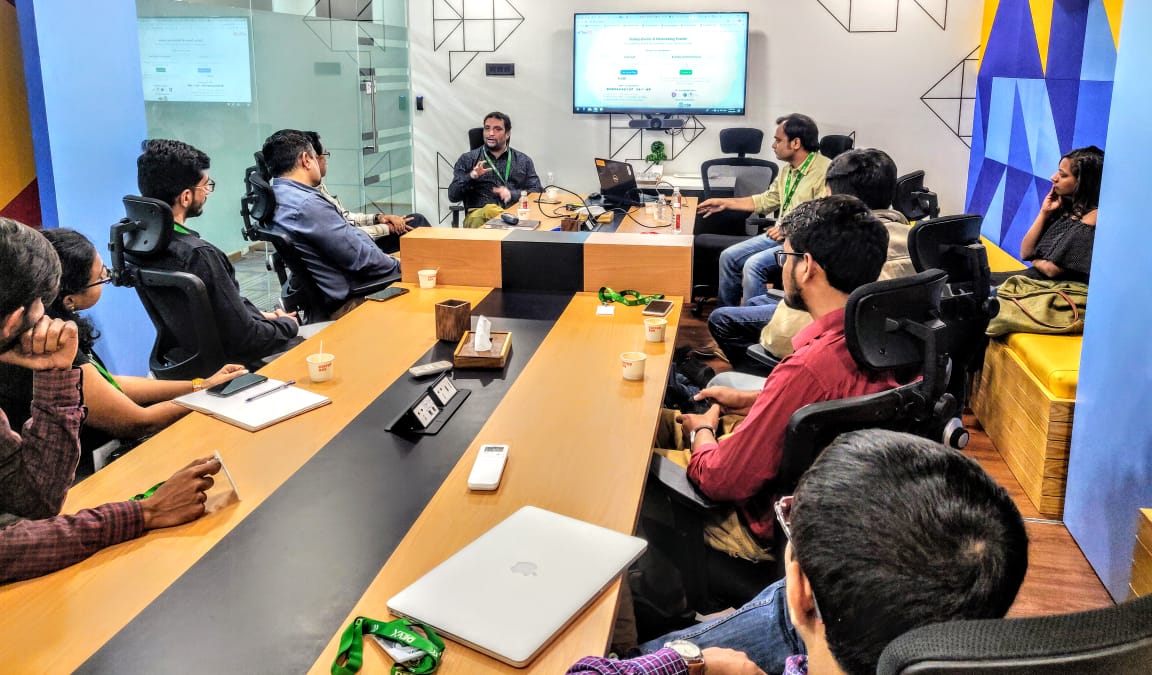9 Steps To Start and Manage a FMCG Retail Store
- by: Jatin Chaudhary
Yesterday we hosted the 'FMCG RoundTable' with Nadeem Jafri (Chief Mentor, Hearty Mart) and founders from the community at DevX, one of the Largest and best co-working space in Ahmedabad, Gujarat, India. A fully furnished shared office space meant for growing and innovative businesses.
Get Your Annual eChai pass for Rs. 1000 per year from eChai.in to attend such engaging, insightful and content-driven programs (100+ Events) throughout the year.
9 steps to start and manage a FMCG retail store
Nadeem Jafri shared key insights for starting and managing a FMCG Retail Store.

Hearty Mart brings the 21st century retail format to the rural and semi urban market. Convenience, range and value for money brought to your neighborhood with its chain of supermarkets spread across the length and breadth of Gujarat.
1. Consumer Demand: For a consumer-friendly retail store to operate, it is essential that you have gauged the consumer demand correctly, hence do a dipstick consumer research in the locality focusing on the purchase pattern and monthly spend of the customers on food-grocery and other FMCG related items.
2. Trade Preference: To do a trade and competition research, visit the mom & pop kirana stores and other supermarkets present in the locality as mystery customer to understand their inventory. This will help you in the initial inventory purchase for your store.
3. Trade Practices: Once the store is operational, the retail entrepreneur should create his own credibility by way of employing fair practices among his stakeholders - investors, partners, employees. Remember the store image hasn’t been created at this point, it is you as an entrepreneur with whom the customers/stakeholders would interact. Hence your individual credibility matters a lot for your store to have a positive impact.
4. Shop Patronage: With efficient services and ensuring good quality products to his customers he can create a credible image of his own store; for this he can employ loyalty programs and promotional activities. A personal touch is required. He should interact with his customers regularly and try to create patrons and not mere customers. Shop patronage helps in fighting competition.
5. Inventory Management: In order to have better margins a retailer can replace the inventory with the products of higher margins and try to earn a decent profit. This is just a short-term strategy and might not be helpful beyond a certain point. The other strategy would be to bring in more footfalls at his store and thus earn better margins on turnover. This again has its own limitation as every locality has a limited scope. Hence the long-term strategy for growth is to open multiple stores.
6. Leveraging Image: Consumer products have thin margins and it becomes difficult fora store operator to manage his bottom-line if he doesn’t expand. Hence once he feels that credible image of his store has been achieved, he can scale up by starting his own chain of stores or enter into a franchise business of creating retail stores.
7. Supply Chain & Bulk Deals: With the network of stores in place, a dependable supply chain can be build up to services these stores. This will encourage centralized buying and the retail chain owner can negotiate bulk deals with the suppliers and achieve economies of scale. This would then have a positive effect on the bottom-line.
8. Private Label: Once he is successful in retaining his customers and has created a strong loyalty for his chain of stores, he can start creating his own in-house private label. Here scale is needed, hence he should analyze the inventory and figure out the ‘most sold products’ and ‘fastest moving products’ from his store. He can start creating private labels of these products.
9. Brand Image Creation: By consistently maintaining the service levels, storing and producing good quality products, engaging with the customers by way of innovative communications and employing on ground activities at his store, he can create a sustainable brand image for his private label and a store as well.
...
You can share your insights and/or ask questions in the comments section.
ps: Get Your Annual eChai pass for Rs. 1000 per year from eChai.in to attend such engaging, insightful and content-driven programs (100+ Events) throughout the year.
